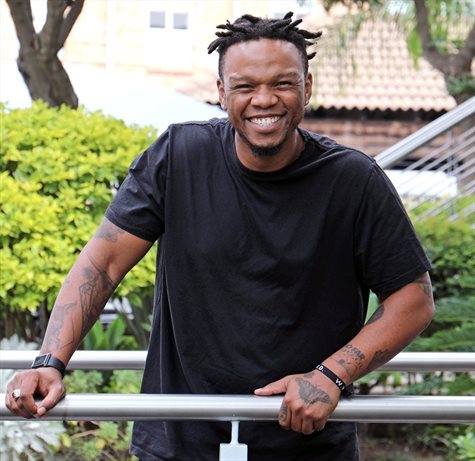David Sachane, an intern at Grey still navigating his way around the industry, sat down with the brand’s Creative Director, Khanya Sijaji, to chat about the role of a Creative Director in an agency, career development, starting a family while being part of a demanding industry, as well as financial advice for young professionals starting off their careers.
The interview forms part of our Future Ballers series; a monthly news source for creatives and professionals under 30, exclusively brought to you by the Association for Communications and Advertising (ACA). Future Ballers aims to keep you informed about the who’s and what’s of the industry and continue to attract brilliant young minds and talent, from all walks of life to the agency world.
For the first feature of the series, graphic designer turned Creative Director, Khanya Sijaji opens up about his thriving career journey and navigating through the advertising industry. Here’s what he had to say:
Describe in your own words, what is the role of a creative director in an agency?
I’m overseeing a team that usually consists of an art director, a writer, supported by digital and social. My job is to align all the guys around a central idea that is going to answer to the demands and the needs of the brand, which usually leads to a campaign. So, we investigate this new idea that has to speak to the brand positioning: does it answer to the brand claim, their consumer, how they behave? What learnings can we take from that and turn into a campaign that the consumer will resonate with?
As a young person myself just finding my feet, would you say it is okay if I change my mind and explore other avenues as far as careers are involved?
From my personal perspective, I didn’t set out to become a creative director. I was always in love with the work and the effectiveness of advertising; how it can change things; move people; inspire a narrative or change a narrative. The creative director position came with
time and the work you do; how effective you’ve been and what you’ve learnt, because the most important learnings are how you can turn around and teach those to others.
Would you say current trends have an influence on younger people just like yourself?
Of course, yes. When we speak about trends it may have a negative connotation and can seem inauthentic, because it has no depth. However, I don’t agree with that, as the inconsistency of trends is what makes it magic. Trends allow you to know when to speak
and how to speak. Social media has been testament to that because trends reflect the way we live at a specific moment in time.
You’re working with an established brand. How do you know that the decision you’re about to make is the best decision and how do you develop a solid idea?
I think advertising works best when it responds to the environment or to the climate. It’s always less about dictating the narrative and more about amplifying the narrative or responding to a narrative. That’s why it’s less of a decision to make and more of what
people are talking about and what our standpoint as a brand is. That applies for all the other brands I am currently working on.
At what point do you know you are ready for marriage and starting up a family?
Those are very profound questions, and I don’t feel like anyone has the right answer for those. I can only give advice according to how I have experienced things. Right now, I have an 11-month-old boy, and day-by-day he is teaching me how to be a dad.
What is considered old-fashioned to you?
To me, old-fashioned is looking at things in a way that no longer resonates with how people behave, what they care about or what moves them. Too often we see old-fashioned in terms of time and dates, but I don’t think that is correct. I am still trying to bring back jingles into advertising because I feel like they still affect people in a big way. You probably remember certain brands because of the jingle ads they had 20 years ago. So, if people have moved on in terms of thinking and how they behave, then it’s old-fashioned even if it started yesterday.
And lastly, what financial advice can you give a young professionals starting his/her career can you give?
Well, I’m a heart-on-the-sleeve kind of a guy, so I love passion projects. Most creatives have a side-gig, and my side-gigs help me to identify myself as a creative. Sometimes we tend to doubt that, but my side projects remind me that I am still creative; it’s about satisfying myself as a creative. Unfortunately, I’m not the most responsible person when it comes to money but what I can tell you from experience is to get out of debt as soon as you can. Even better is to avoid debt as soon as you can. Not having access to your funds impacts your way of living, your mentality and your levels of creativity.




